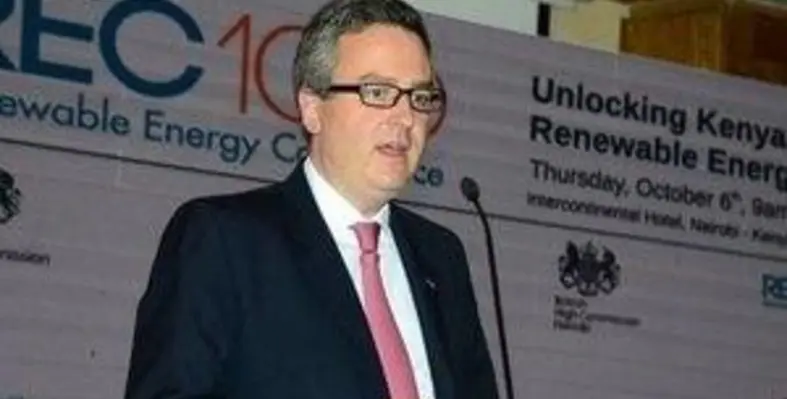Plans to stimulate investment by British firms in the Kenyan renewable energy sector were yesterday unveiled by the UK government and Barclays Bank at an event in Nairobi
Bringing together 100 representatives from Kenyan and British firms, the UK-Kenya Renewable Energy Conference (REC 100) hosted by the British High Commission in conjunction with Barclays Bank of Kenya aimed to consolidate a pipeline of low carbon deals to accelerate affordable electrification in the country.
Speaking at the conference, the British High Commissioner to Kenya Nic Hailey said, "The UK and Kenya are at the vanguard of renewable energy, clean technology and innovation. Kenya has one of the most active renewable energy sectors in Africa, and the UK is a global leader in many of the sectors for which Kenya has greatest demand.
"We are excited by this growing UK-Kenya partnership in renewables, working together to bring clean, sustainable energy to the Kenyan people and accelerate Kenya’s development and economic growth."
The collaboration between the UK and Kenya is backed by a Memorandum of Understanding (MoU) signed by both parties in May, which confirmed Ksh 70 billion to develop strategic renewable projects in Kenya and promote opportunities for private sector trade and investment by the UK into the renewable energy sector.
Barclays Bank of Kenya plays a leading role as an advisor and backer of sustainable energy projects. Barclay’s Bank of Kenya CEO Jeremy Awori said, "Our expertise in investment financing and knowledge of the energy sector and its technologies position us to take advantage of falling renewable energy costs by partnering with the right investors to help Kenya achieve the government’s 5000MW plan by 2017."
Kenya's energy sector has experienced robust growth over the past decade, with the country bringing online 576MW of new load base capacity since 2013.
Increased energy production has coupled with higher grid connectivity, improving Kenya's grid electricity access rate from 27% in 2012 to 55% in 2016.
However, the country still has a low electrification rate by development standards, with more projects needed to meet demand.













